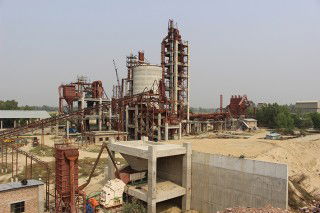Although progress is being seen in some aspects of the built environment on the drive to be more sustainable, the rate of advancement needs to accelerate significantly and become more widespread, according to the latest annual sustainability report by the UK-based Royal Institution of Chartered Surveyors (RICS).
The 2022 RICS Sustainability Report, which collated sentiment from almost 4000 chartered surveyor contributors (including 1200 in the UK) across commercial and construction sectors globally, shows that some improvement in the push for sustainability has been made in the past year, most notably in the commercial real estate sector, as demand for green buildings continues to rise. However, the data also shows there has been little or no change in some important areas in the past 12 months. Indeed, in construction, a significant share of professionals say they do not measure carbon emissions on projects.
Looking at investors and occupiers separately in the UK, around 65 per cent of contributors note that occupier demand for green/sustainable buildings has risen over the past 12 months. However, the UK is falling behind Europe as a whole, with Europe leading the way with around 52 per cent of contributors across the region seeing a modest increase in demand, and just under one-quarter stating that occupier interest in green/sustainable buildings has increased significantly.
On the investment side around 45 per cent of survey contributors in the UK report a modest increase in investor appetite for green/sustainable buildings over the past 12 months, which is five per cent higher than the global average. A further 21 per cent suggest there has been a more significant increase in demand. Comparing the UK to the rest of Europe, where the pick-up in investor demand is again stronger, around 80 per cent of those surveyed across the whole of Europe have seen an increase in investor demand for green/sustainable real estate in the past year.
According to RICS, there is much room for improvement in measuring carbon emissions. Around 76 per cent of professionals in the UK state that they make no operational measurement of carbon emissions on projects, which is in line with the whole of Europe but slightly higher when compared globally (72 per cent). With more than half of the UK respondents also saying that they do not measure embodied carbon, even for those that do, less than 14 per cent use it to select the materials they use in their project.
When probed on the barriers to reducing carbon emissions, around 38 per cent of contributors identified both the lack of established/adopted standards, guidance and tools, and high costs or low availability of low-carbon products as the most fundamental issues. Alongside this, contributors also highlight cultural issues and established practices as a challenge.
“Barriers to progress cited in the report have included a lack of established standards, guidance and tools. However, it is equally fair to say that industry must adopt these tools and standards where they are available and should make carbon assessment and management an integral part of business practice. Industry needs to work in collaboration to succeed. The work RICS is leading with partners, for example the ICMS coalition in developing a cost measurement standard that combines cost and carbon reporting, is a key example,” says Kisa Zehra, sustainability analyst at RICS.
